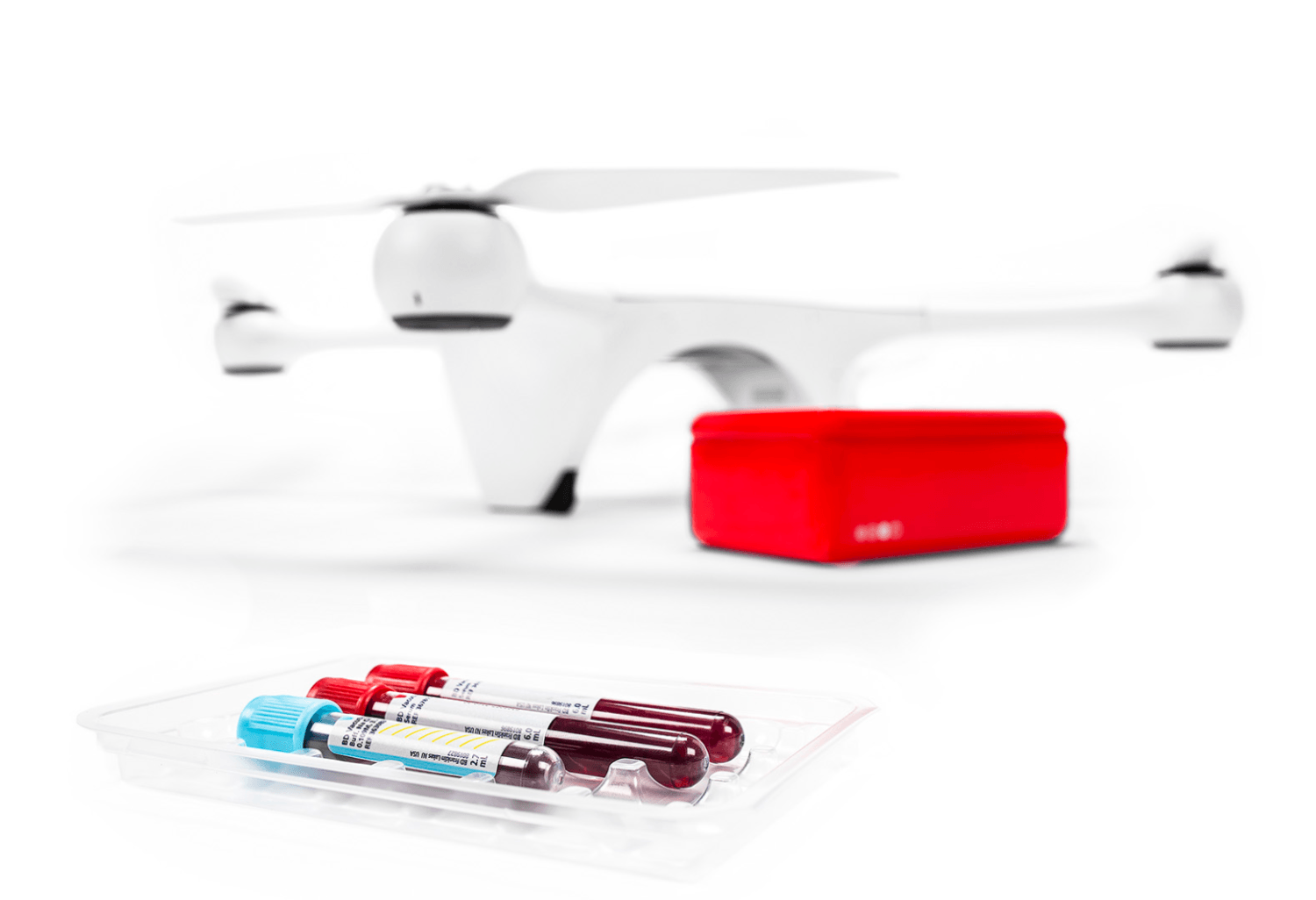
UPS has announced a landmark new logistics service to deliver medical samples via unmanned medical drones through a collaboration with autonomous drone technology provider Matternet. The medical drone program will take place at WakeMed’s flagship hospital and campus in the Raleigh, N.C., metropolitan area, with oversight by the Federal Aviation Administration and North Carolina Department of Transportation. Numerous planned daily flights are already underway at the WakeMed Raleigh campus
The announcement is the latest UPS program to utilize drone flights in support of healthcare logistics. UPS partnered with GAVI and Zipline in 2016 to deliver blood products to remote locations in Rwanda. To date, Matternet team has already completed more than 3,000 flights for healthcare systems in Switzerland.
Related: Are Drones The Future of Medical Air Transport?
Here are five key things to know about this groundbreaking medical drone service:
1. The medical drone program will utilize Matternet’s M2 quadcopter, which is powered by a rechargeable lithium-ion battery and can carry medical payloads weighing up to about 5 lbs. over distances of up to 12.5 miles.
2. The addition of medical drone transport provides an option for on-demand and same-day delivery, the ability to avoid roadway delays, increase medical delivery efficiency, lower costs and improve the patient experience with potentially life-saving benefits.
3. During the WakeMed program, a medical professional will load a secure drone container with a medical sample or specimen – such as a blood sample – at one of WakeMed’s nearby facilities.
The drone will fly along a predetermined flight path, monitored by a specially trained Remote Pilot-in-Command (RPIC), to a fixed landing pad at WakeMed’s main hospital and central pathology lab.
4. WakeMed plans for this to be an ongoing program and UPS and Matternet will use the learnings to consider how drones can be applied to improve transport services at other hospitals and medical facilities across the U.S.
5. Healthcare and life science logistics is a priority segment for UPS and the company plans to build new relationships and technologies to deliver better patient care with streamlined logistics and healthcare supply chain.
